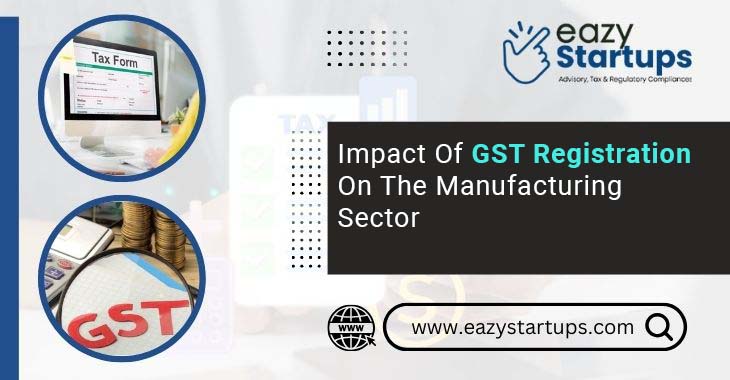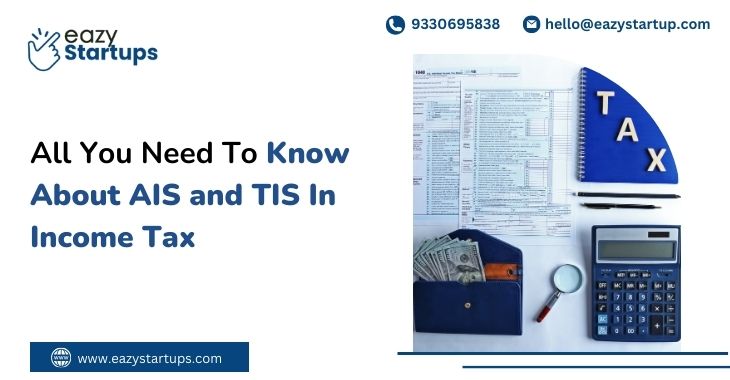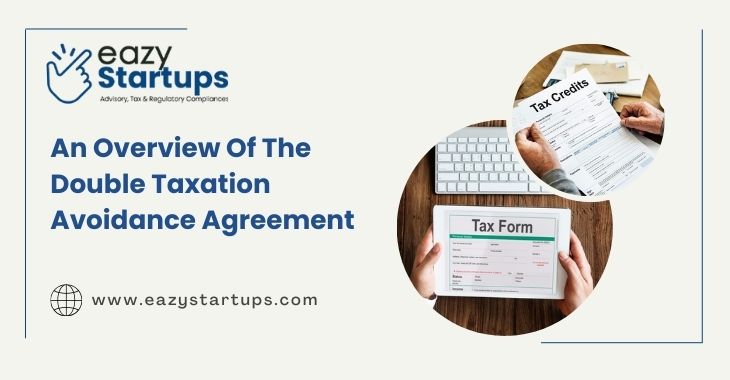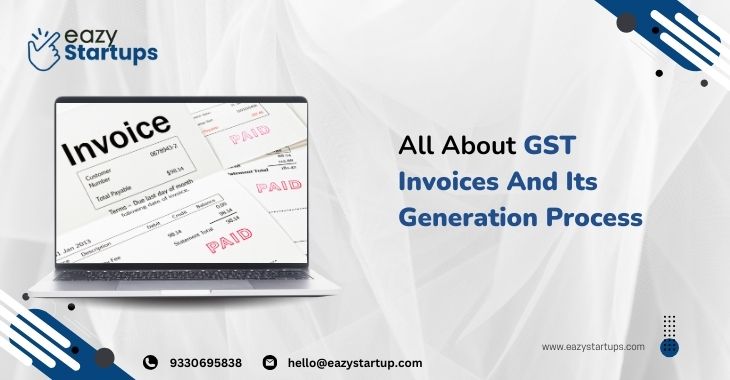In India, the Goods and Services Tax (GST) has significantly changed how businesses operate, particularly in the manufacturing sector. With the introduction of GST, companies are required to register and comply with the new tax regime. While this transition may seem daunting initially, GST registration has proven beneficial for the manufacturing sector in several ways. At Eazy Startups, we specialize in assisting businesses with Online GST Registration in India, and we’re here to explore how GST registration is helping the manufacturing sector thrive.
- Simplified Tax Structure
- Input Tax Credit (ITC)
- Elimination of Cascading Effect
- Increased Compliance
- Expansion of Market Reach
Simplified Tax Structure:
One key advantage of GST Registration for the manufacturing sector is the implementation of a simplified tax structure. Under the previous tax regime, manufacturers were subject to a complex web of indirect taxes, including excise duty, value-added tax (VAT), and service tax. GST replaces these multiple taxes with a single, unified tax, making it easier for manufacturers to understand and comply with their tax obligations. This simplification of the tax structure reduces administrative burden and streamlines tax compliance processes for manufacturers.
Input Tax Credit (ITC):
GST registration enables manufacturers to claim input tax credit (ITC) on the taxes paid on inputs and input services used in manufacturing. This means that manufacturers can offset the GST paid on raw materials, components, and services against the GST collected on their output. By claiming ITC, manufacturers can reduce their overall tax liability, leading to cost savings and improved profitability. Eazy Startups assists businesses in maximizing their ITC claims and ensuring compliance with GST regulations.
Elimination of Cascading Effect:
In the past, manufacturers often faced higher costs due to the way taxes were structured. They had to pay taxes on the materials they used, but they couldn’t fully offset those taxes with the taxes they paid on their final products. However, with GST, this problem is solved. GST allows for a smooth transfer of tax credits throughout the supply chain, which means that taxes are only levied on the value added at each stage of production. This results in lower overall taxes and makes manufacturers more competitive.
Increased Compliance:
GST registration mandates compliance with various GST regulations, including timely filing of returns and maintaining proper accounting records. While compliance requirements may seem daunting initially, they ultimately benefit manufacturers by promoting transparency, accountability, and good governance. By adhering to GST regulations, manufacturers can build trust with customers, suppliers, and regulatory authorities, enhancing credibility and reputation in the marketplace.
Expansion of Market Reach:
GST has facilitated the creation of a unified national market, enabling manufacturers to expand their market reach beyond state borders. With the removal of inter-state barriers and implementing a uniform tax rate across the country, manufacturers can now access a more extensive customer base and explore new business opportunities. Eazy Startups assists businesses in navigating inter-state transactions and ensuring compliance with GST laws across different jurisdictions.
Bottom Line
GST registration has brought about significant benefits for the manufacturing sector in India. From simplifying the tax structure and facilitating input tax credit claims to promoting compliance and market expansion, GST registration has transformed how manufacturers conduct business. At Eazy Startups, we’re committed to helping companies to navigate the complexities of GST registration and compliance, enabling them to unlock the full potential of the manufacturing sector in India. Contact us today to learn more about our Online GST Registration in India and how we can assist your business.











Recent Comments